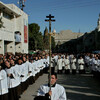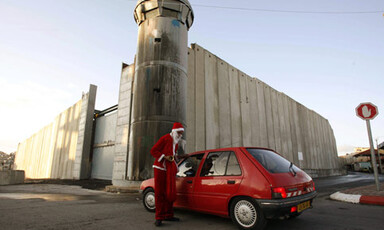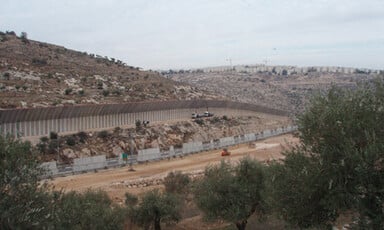
A Palestinian love story
Ramallah, West Bank 27 December 2007
A few months ago, a European professional in Ramallah threw a farewell party after completing part of the project for which he was recruited. The European himself, a Belgian, spent many years previously in the Palestinian territories and was very well liked locally, not least because he married a Palestinian woman, but that’s another story. A friend and old colleague of mine came up to me at the party and asked me discretely about A., a good-looking and outgoing woman who works with us. Read more about A Palestinian love story








